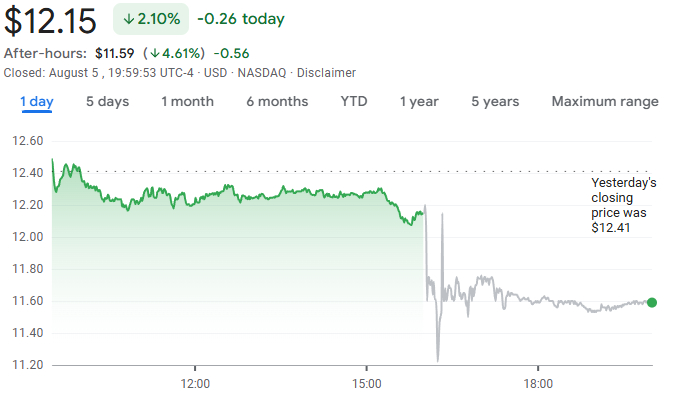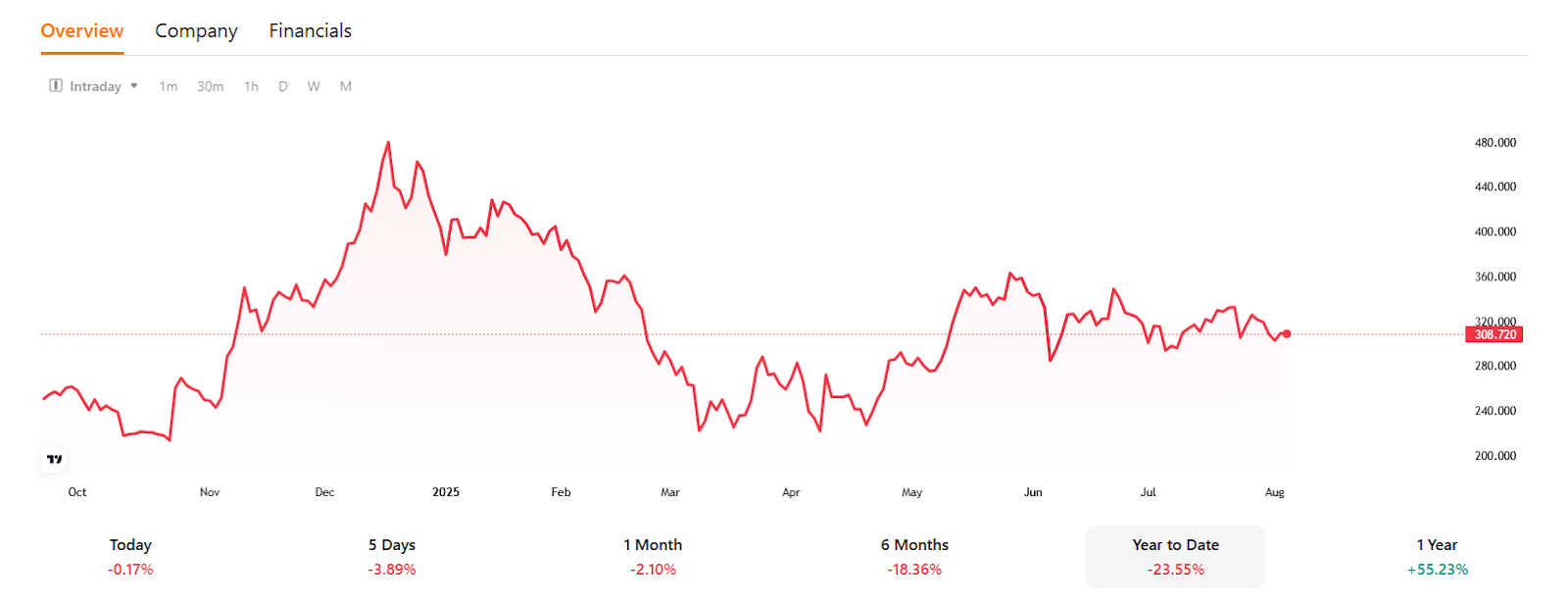Rivian Losses Widen, Profit Target Delayed: Is the EV Industry Entering a Deep Freeze?
TradingKey - Electric vehicle maker Rivian (RIVN) unveiled concerning Q2 2025 financial results and outlook, significantly widening its full-year adjusted loss forecast and delaying its path to breaching gross margin. Shares declined 4.6% in after-hours trading following the announcement.

Rivian stock; Source: Google Finance
Rivian now projects 2025 adjusted losses of $2.0–2.25 billion, substantially exceeding its May forecast of $1.7–1.9 billion, reflecting deepening financial pressure.
Critically, the company has revised its financial target downward, softening its previous commitment to achieve "modest positive gross margin" to now targeting "gross margin breakeven." Rivian acknowledged that newly imposed tariffs have triggered supply chain cost surges, directly compressing margins, while declining regulatory credit sales have rendered earlier profitability goals unattainable.
Simultaneously, Rivian reduced its 2025 delivery outlook from 46,000–51,000 vehicles to 40,000–46,000 units, citing persistent weak demand and global economic uncertainty.
"The global economic landscape and the U.S. regulatory environment present significant uncertainty, particularly regarding evolving trade regulation, policies around regulatory credits and EVs, tariffs and the overall impact these items may have on our results, consumer sentiment and demand," the company said in its letter to shareholders.
These concerns are not unfounded, as the Trump administration's reduction in support for subsidies for electric vehicles is beginning to trigger panic within the U.S. automotive industry. This sector heavily relies on parts sourced from Canada, Mexico, and other countries.
This means that the federal government’s policy rewrite regarding electric vehicle incentives will subject the electric vehicle industry to more adverse factors in the second half of the year.
Compounding these challenges, high interest rates have significantly dampened consumer purchasing power, with potential EV buyers shifting to hybrids or traditional combustion-engine vehicles due to cost considerations.
EV Industry Winter Approaches
This trend extends beyond Rivian, affecting the entire electric vehicle sector.
Industry leader Tesla reported a 16% decline in net income in its July-released Q2 results, marking another quarter of steep declines. Its Q2 vehicle deliveries totaled 384,122 units, down from 443,956 a year earlier.
“We’re in this weird transition period where we’ll lose a lot of incentives in the U.S.,” Tesla Chief Executive Elon Musk said in July, alluding to an expiring tax credit designed to boost EV sales. “But we’re still at the relatively early stages of autonomy,” he said.
“We probably could have a few rough quarters,” Musk added. “I’m not saying we will, but we could.”
Year-to-date, Rivian shares have fallen 8.7% while Tesla has declined 23%.

Tesla stock; Source: TradingKey
Amid these challenges, Rivian confirmed it remains on track to launch its new R2 electric SUV in the first half of 2026.



